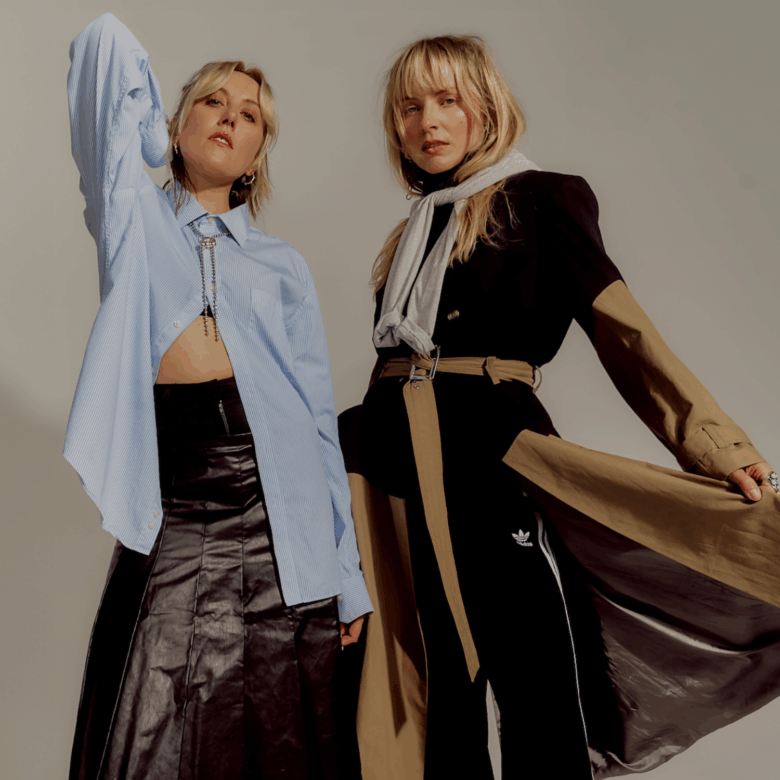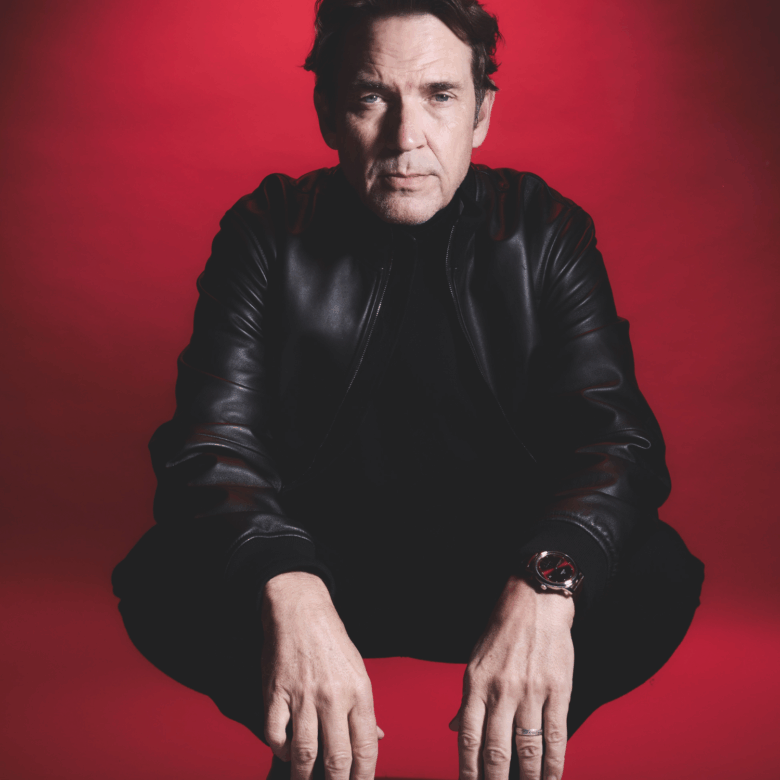From Lagos to London: Meet the Nigerian talents transforming the UK’s creative landscape

- WriterChris Saunders
- PhotographerAlex Rorison
- Deela's Stylist Tio Enitan
- Make-up ArtistPhoebe Llewellyn
- Hair Stylist Jacqueline Ezeuko using Wowangel and Ebin
- ProducerAbby Rothwell
Over the past few years, the O2 arena – London’s world-famous 20,000-capacity venue – has seen its sea of seats and open floor filled to the brim thanks to Burna Boy, Asake and Wizkid, some of Nigeria’s biggest musical stars. Perhaps that should come as no surprise: they’re all among the most popular and recognisable artists in contemporary music, after all. They’ve amassed billions of streams, sold out venues across the globe and collaborated with Western music’s most popular artists. Meanwhile, in London, Nigerians make up the second-largest non-UK-born population by country of birth, reaching a total of 135,000 in 2020. With the combination of Nigerian art, music and fashion finally being championed across the world, alongside the growing population in the UK’s capital, it was inevitable that we would begin to see the African country’s influence flourish throughout its creative scene.
Of course, there have been countless British-born creatives of Nigerian descent who have had a huge impact not just in their creative field but also on the UK’s culture as a whole. Take Skepta, for example, who was born in Tottenham and strode onto the music scene with 2008’s “Rolex Sweep”. Back then, he was a burgeoning talent, striving to be heard among the noise of the overcrowded British music industry, where Girls Aloud and Adele reigned supreme and grime had little to no place. Today, he is the undeniable overlord of the genre and one of the most influential artists of our generation, even delving into film, art and fashion. Additionally, fellow musician Dave, who secured UK rap’s longest-running No 1 with Central Cee, also comes from a Nigerian bloodline, as do the Hollywood stars John Boyega and Damson Idris. Now, though, we’re beginning to see success from those who migrate from Nigeria, particularly Lagos, to the Big Smoke. Take a look at some
of the recent success stories from London’s scene, and you’ll begin to see a pattern: many of the most innovative talents shaking up the landscape are, in fact, Nigerian. Olaolu Slawn, who became the youngest artist to design the Brit Awards statuette, can count Frank Ocean, Lil Uzi Vert and Mia Khalifa as fans of his surrealist graffiti canvases and recently opened every London creative’s favourite WFH hotspot: BeauBeaus in Aldgate. Meanwhile, Mowalola Ogunlesi – founder of the brand Mowalola – has seen her designs adorning Solange, Kim Kardashian and Naomi Campbell.
Fittingly, the aforementioned BeauBeaus is where HUNGER met Iretidayo Zaccheaus, mononymously known as Ireti, another prominent Nigerian creative who moved to London at a young age. Ireti is the founder of Street Souk, Africa’s largest streetwear convention, with the first event taking place in 2018. “I moved from Lagos to London about 12 years ago,” says the 24-year-old. “I would say it was like a rite of passage. My brother was already in school here, and where I’m from, when you reach a certain age, you just move to the UK for boarding school.”

While Ireti is a lover of all things art, music and fashion now, when she moved to the UK she had no aspirations to pursue a creative career. In fact, she had her sights set on becoming a chemical engineer or an investment banker – a far cry from the streetwear guru she is now. “When I grew up, I realised the only reason I wanted to do those jobs was because I just wanted to be rich, and those were the only jobs I thought could make you rich,” she recalls. “Then I realised that people here in fashion, music and entertainment lived similar lifestyles, and it looked much more fun. My brother [the altê artist Teezee] and my mother are in the entertainment industry, so I was really born into this.”
When asked why she thinks there’s such creative synergy between Nigeria and London in particular, Ireti asserts it’s because of their youthful energies. “The youth population in Nigeria is massive, and when you come to London, which I think is also a really youthful place, you feel like you can do anything – you’re allowed to explore your creativity. In Lagos, you’ve been suppressed into thinking you can only be a doctor or a lawyer, until you get access to the internet and you realise there’s so much more you could be doing.”
Ireti may have spent much of her adolescence in London, but it’s displaying her Nigerian heritage that is of paramount importance to her when it comes to her creative output. “I’m very patriotic, so regardless of what’s going on in the country, whether it’s the politics or the state of the economy, I just have so much hope and belief in my country and people,” she says. “So many young Nigerian creatives have been able to achieve so much with so little, whether they’ve moved to the UK or not. I think Nigerians are some of the most talented people in the world.”
Musically, a slew of rising Nigerian talents are taking over London’s underground, and one in particular is Adeola Oni, professionally known as DEELA, a versatile and infectiously confident artist. “I moved here from Lagos to a boarding school when I was 12 or 13, and the culture shock was definitely a lot,” she tells HUNGER. “We’re very assertive in Nigeria, even if we don’t mean to be, which I feel can rub people up the wrong way sometimes. I came here with a lot of confidence and love, but people used to label me as intimidating quite a lot.” Now, she calls London home, only returning to Nigeria for holidays and special occasions. Despite there being some cultural differences, Oni’s time at boarding school was helped by the fact that a number of her compatriots were also attending: “I got there and found out I had about six cousins, actually!”
From a young age, Oni was always enamoured by music – she was in the church choir as a youngster and would often write songs in her spare time – but it wasn’t until the pandemic that she started focusing on it as a career. Prior to that, much like Ireti, she had much more academic aspirations. “I ended up going to the University of Bristol to study biomedicine. I wanted to do something STEM-related because I loved science, but now I’ve ended up doing a big 180 with music. A lot of people around me decided to do something creative, too, after going to school.”

Thanks to an eclectic host of influences, including Anita Baker, Whitney Houston and Davido, as well as the impact of different cultures around her, Oni’s music is anything but predictable. “My music is fierce,” she says. “People always say when they hear one of my songs that they know it’s me – I don’t think you can replicate it.” When Oni first began her musical journey, she admits that she wasn’t pulling as much stylistically from her Nigerian roots as she is now. “As I’m getting older, I’m just trying to tie my culture into it a lot more. I’ve been working a lot with Nigerian producers, and for my “Take It Up” video, I did some Nollywood acting. I just try to incorporate my heritage in subtle ways without making it seem forced.”
Without exuberant Nigerian rising stars like Oni, Fimiguerrero, Brazy and L0LA, London’s underground rap scene wouldn’t be in the position it is today – the most exciting it’s been since the mid-2010s. “It’s really nice to see all of us getting recognition, because we all grew up in and around the same social circles,” Oni says. “We all came up together, but we all have such different sounds. None of us sounds the same at all and we’re all completely in our genres and worlds.”
Overall, that’s what ties these talents together: their lack of boundaries and ability to defy the conventions of a particular genre or creative field. And as their influence continues to grow not only in London and the UK or Lagos and Nigeria but the world as a whole, we’ll look back on this crop of talent as trailblazers, laying down the framework for many more to follow.
“I’m so excited to see how far not only we can take it, but the generation after us can take it creatively,” Ireti says. “This is one of the first generations who are moving from Nigeria and making a name for themselves both in and out of the country as creative entrepreneurs. Whether it’s photography, fashion, art, anything, it’s really incredible to see people getting recognition from not just London and Lagos, but the world.”

